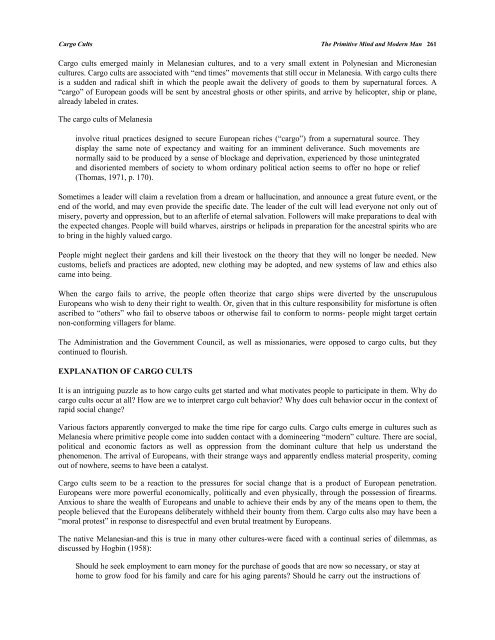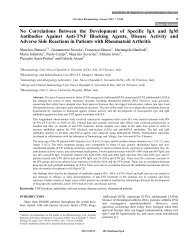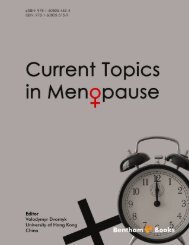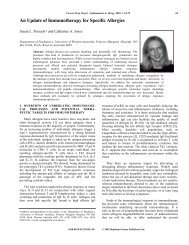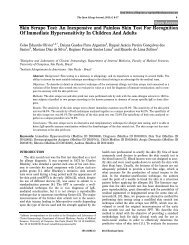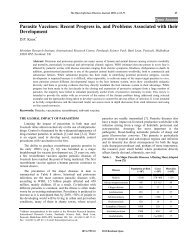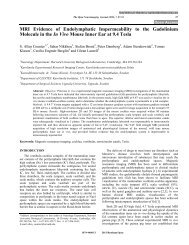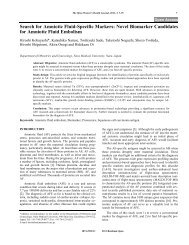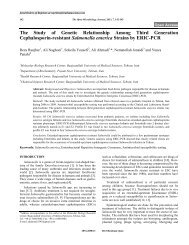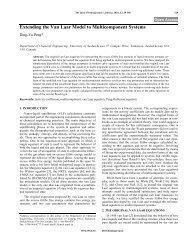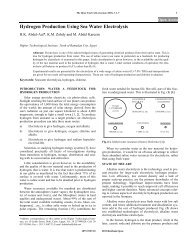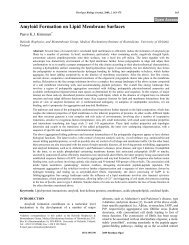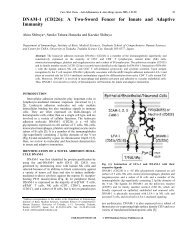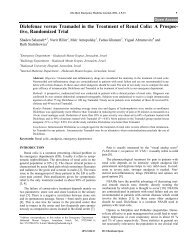chapter 1 - Bentham Science
chapter 1 - Bentham Science
chapter 1 - Bentham Science
You also want an ePaper? Increase the reach of your titles
YUMPU automatically turns print PDFs into web optimized ePapers that Google loves.
Cargo Cults The Primitive Mind and Modern Man 261<br />
Cargo cults emerged mainly in Melanesian cultures, and to a very small extent in Polynesian and Micronesian<br />
cultures. Cargo cults are associated with “end times” movements that still occur in Melanesia. With cargo cults there<br />
is a sudden and radical shift in which the people await the delivery of goods to them by supernatural forces. A<br />
“cargo” of European goods will be sent by ancestral ghosts or other spirits, and arrive by helicopter, ship or plane,<br />
already labeled in crates.<br />
The cargo cults of Melanesia<br />
involve ritual practices designed to secure European riches (“cargo”) from a supernatural source. They<br />
display the same note of expectancy and waiting for an imminent deliverance. Such movements are<br />
normally said to be produced by a sense of blockage and deprivation, experienced by those unintegrated<br />
and disoriented members of society to whom ordinary political action seems to offer no hope or relief<br />
(Thomas, 1971, p. 170).<br />
Sometimes a leader will claim a revelation from a dream or hallucination, and announce a great future event, or the<br />
end of the world, and may even provide the specific date. The leader of the cult will lead everyone not only out of<br />
misery, poverty and oppression, but to an afterlife of eternal salvation. Followers will make preparations to deal with<br />
the expected changes. People will build wharves, airstrips or helipads in preparation for the ancestral spirits who are<br />
to bring in the highly valued cargo.<br />
People might neglect their gardens and kill their livestock on the theory that they will no longer be needed. New<br />
customs, beliefs and practices are adopted, new clothing may be adopted, and new systems of law and ethics also<br />
came into being.<br />
When the cargo fails to arrive, the people often theorize that cargo ships were diverted by the unscrupulous<br />
Europeans who wish to deny their right to wealth. Or, given that in this culture responsibility for misfortune is often<br />
ascribed to “others” who fail to observe taboos or otherwise fail to conform to norms- people might target certain<br />
non-conforming villagers for blame.<br />
The Administration and the Government Council, as well as missionaries, were opposed to cargo cults, but they<br />
continued to flourish.<br />
EXPLANATION OF CARGO CULTS<br />
It is an intriguing puzzle as to how cargo cults get started and what motivates people to participate in them. Why do<br />
cargo cults occur at all? How are we to interpret cargo cult behavior? Why does cult behavior occur in the context of<br />
rapid social change?<br />
Various factors apparently converged to make the time ripe for cargo cults. Cargo cults emerge in cultures such as<br />
Melanesia where primitive people come into sudden contact with a domineering “modern” culture. There are social,<br />
political and economic factors as well as oppression from the dominant culture that help us understand the<br />
phenomenon. The arrival of Europeans, with their strange ways and apparently endless material prosperity, coming<br />
out of nowhere, seems to have been a catalyst.<br />
Cargo cults seem to be a reaction to the pressures for social change that is a product of European penetration.<br />
Europeans were more powerful economically, politically and even physically, through the possession of firearms.<br />
Anxious to share the wealth of Europeans and unable to achieve their ends by any of the means open to them, the<br />
people believed that the Europeans deliberately withheld their bounty from them. Cargo cults also may have been a<br />
“moral protest” in response to disrespectful and even brutal treatment by Europeans.<br />
The native Melanesian-and this is true in many other cultures-were faced with a continual series of dilemmas, as<br />
discussed by Hogbin (1958):<br />
Should he seek employment to earn money for the purchase of goods that are now so necessary, or stay at<br />
home to grow food for his family and care for his aging parents? Should he carry out the instructions of


